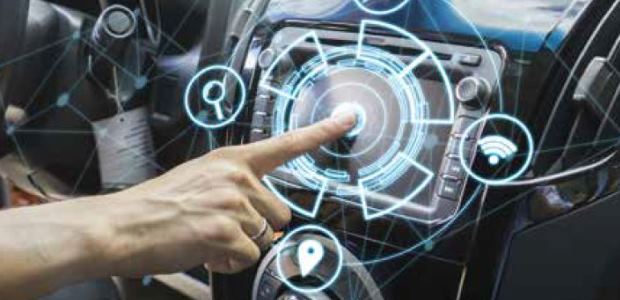
ASSP Produces Technical Report on Automated Vehicle Use
"This type of technology holds incredible promise for its potential to prevent injuries and save lives, but plenty of work remains for the safe development and deployment of automated vehicles on a mass scale," said Kelly Nantel, who chairs the ASSP technical subcommittee that wrote the report.
The American Society of Safety Professionals has developed a technical report to help companies safely manage their high-tech fleets. The report identifies key factors that fleet managers should consider when selecting automated vehicles and outlines a plan to assist with their safe operation.
"Not so long ago, automated vehicles seemed like science fiction, but the reality is that this technology has become increasingly common in helping drivers stay safe on the road," said Kelly Nantel, chair of the ASSP technical subcommittee that wrote the technical report. A consensus-based document, ASSP TR-Z15.3-2019, "Management Practices for the Safe Operation of Partially and Fully Automated Motor Vehicles," contains recommendations from safety experts who have backgrounds in traffic safety, collision avoidance systems, risk management, and motor vehicle equipment manufacturing.
Its guidance covers areas such as vehicle acquisition, training, operation, maintenance, and incident reporting.
"While the technical report can help any company safely incorporate automated vehicles into their fleets, it's especially beneficial to those that don't have expertise in this area and are looking for a blueprint to assist them," Nantel said. "It's just what a fleet safety professional needs as new policies and procedures are developed."
ASSP reported that more than 90 percent of new cars sold in the United States have at least one advanced driver-assistance system feature, such as adaptive cruise control, automatic parking, and blind spot monitoring, and 20 auto manufacturers have committed to equipping all new passenger vehicles with automatic emergency braking by 2022. "This type of technology holds incredible promise for its potential to prevent injuries and save lives, but plenty of work remains for the safe development and deployment of automated vehicles on a mass scale," said Nantel, who is the vice president of communications and advocacy for the National Safety Council. "Every driver must remain alert and be prepared to take over driving operations because they are still their car's best safety feature. We sadly have already seen fatal crashes in which drivers of partially automated vehicles did not heed warnings to take control of the wheel."